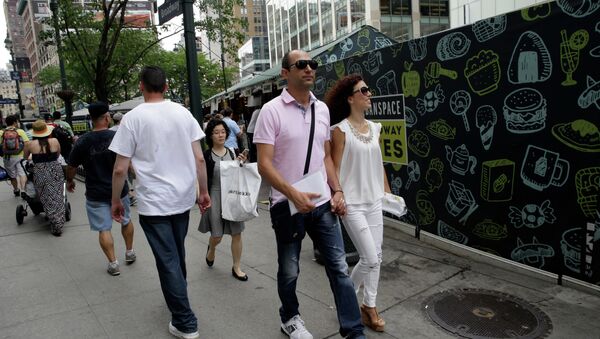Using Google Glass, a hands-free wearable computer designed to look like eyeglasses, New York University researchers sought to track the eye movements of 61 New Yorkers who were instructed to look at whatever caught their attention while walking down the street.
The Google Glass video camera, placed over the right eye, recorded their gaze. Researchers wrote in the journal Psychological Science that, although socio-economic status did not account for how often a person looked at others, there was nonetheless a correlation between class and interest in others, with wealthier people spending the least amount of time looking at others.
Researchers theorized that "people’s social class affects their appraisals of others’ motivational relevance—the degree to which others are seen as potentially rewarding, threatening, or otherwise worth attending to."
LiveScience wrote that the "findings make a compelling case that social classes differ in their judgments of other people's significance," adding, "…one possible explanation may be that, for people in higher social classes, other human beings hold less 'motivational relevance' — a psychology term that means how worthy of one's attention something or someone is, based on how much reward or threat might be linked with that object or person."
Google Glass can sense where a person turns their head, but not necessarily where the eyes are directed, so scientists followed up with a device that tracks eye movements, timed to street scenes in New York City. This yielded the same outcome.
A third study showed 400 participants computer images and found that wealthier people took longer to notices changes in facial expressions. "This finding suggests that social class, like other forms of culture… can shape human cognitive functioning at a deep level," they wrote.




